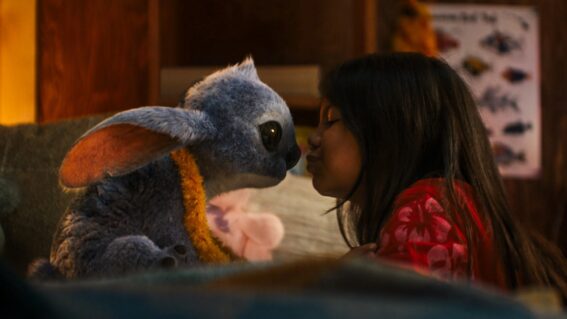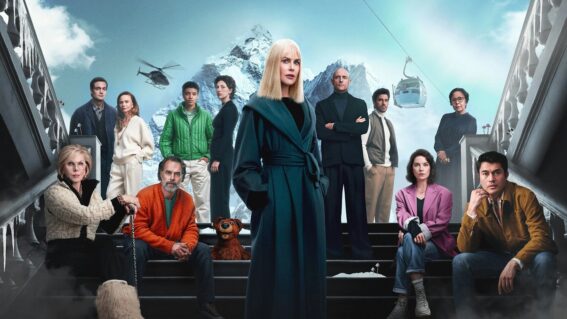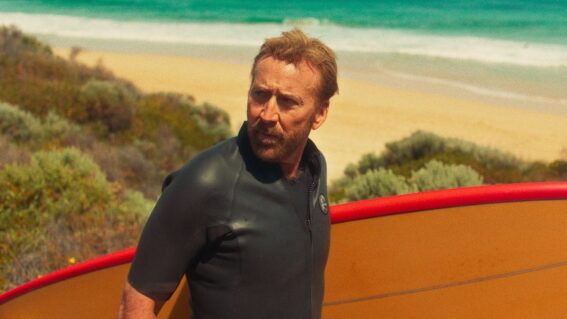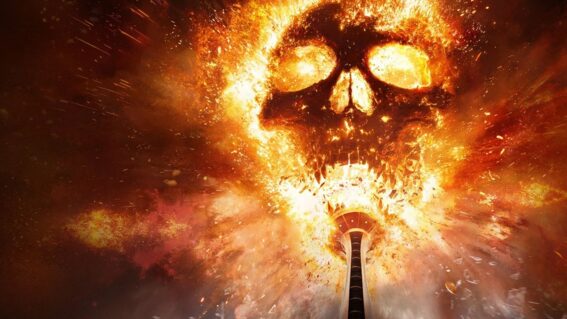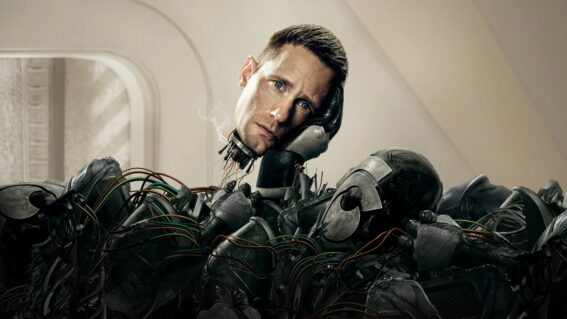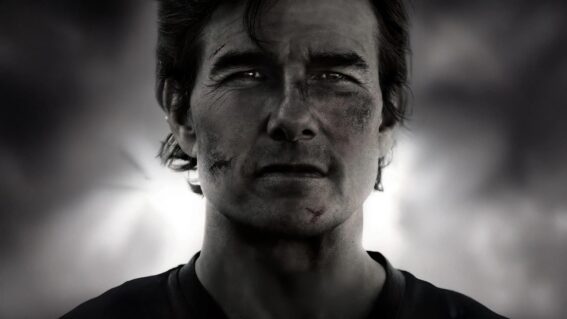Fantastic Fest: Days 1 & 2
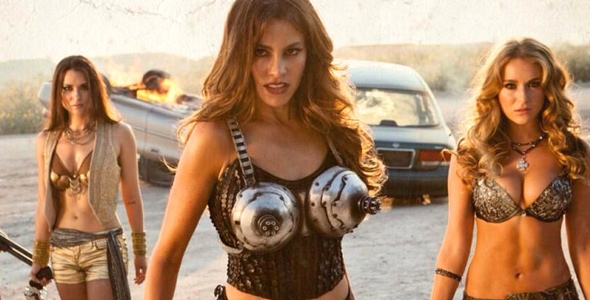

Fantastic Fest 2013 kicked off in badass fashion, with Danny Trejo and Robert Rodriguez bringing the world première of Machete Kills to the Alamo Drafthouse Lakeline in their hometown of Austin, Texas. Being the opening night, there were only three slots in which to see a film, and my reviews of my selections follow. The second day of Fantastic Fest brought with it a great range of films; the first night of Chaos Reigns Karaoke; and guests like Elijah Wood and Alex Winter. With Keanu Reeves appearing on the third day, yes, that means Bill and Ted are both at Fantastic Fest.
MACHETE KILLS
If you liked Machete, you’ll like Machete Kills.
It’s largely more of the same – big guns, big blades, big boobs – with the excess and weirdness dialled up even higher than before. In the Q+A that followed the screening, director Rodriguez tellingly revealed that many elements in the movie were spur-of-the-moment “hey this’ll be cool” decisions, and it shows: many gags are nonsensical and come from nowhere. The sprawling cast (including Mel Gibson in a delightful bad-guy role) chew the often-corny dialogue with relish.
At 107 minutes it’s a little long – with a movie like this you really need to get in, slap the audience around, and get out – but the setup for the third film is magnificent. Machete Kills Again will be better than Machete Kills.
PATRICK
Aussie Mark Hartley made his name with Not Quite Hollywood, a fantastic documentary on the rise and fall of Australian exploitation cinema, and one of the key titles highlighted in that film was Patrick, the story of a nurse and the comatose, telekinetic patient who loved her. Now he makes his narrative debut with a remake of that film.
Hartley, writer Justin King, and legendary producer Anthony I. Ginnane made a smart decision in making this film vastly different in tone to the original: where the original was a rough Ozploitation shocker, this is a Hammer-esque gothic chiller, full of jump scares, oppressive atmosphere and grimy art direction. You’re Next‘s Sharni Vinson pulls out another fantastic strong turn, while Tywin Lannister himself, Charles Dance, chews the scenery as a villainous, ECT-obsessed doctor.
The Pino Donaggio score is a little overblown, but you don’t hire Pino Donaggio for subtlety. If I had to gripe, the editing and pacing are a little patchy, with scenes coming and going seemingly out of context at times, which can probably be attributed to the short (25 days) production period. But Hartley has made a fine dramatic debut, bringing a strong sense of style and a dynamic new third act to a remake of an Aussie cult classic.
ALMOST HUMAN
An ultra low-budget sci-fi horror from Rhode Island, Almost Human tells the story of Seth, whose friend Mark disappears in a flash of blue light, only to return mysteriously two years later. But when he returns, he’s not the same.
It’s a fawning homage to the ’80s films of John Carpenter and David Cronenberg, with an icy atmosphere and plenty of grue in the back half. But it suffers from classic “whose-story-is-it” syndrome, with three characters given seemingly equal screen time and only one – the bad guy – actually doing anything for the first two-thirds of the movie. The first-time feature filmmakers have wrung an enormous amount out of their tiny budget, and they show huge promise, but this film’s single-minded intensity lets the side down by not letting us into the characters’ minds.
ESCAPE FROM TOMORROW
This is a film that so far has been better known for its filmmaking process than for the actual film itself. Shot in secret and without permission at Disney Land and Disney World, when it premièred at Sundance there was a sense it would never be seen again. But Disney has left it alone, presumably out of fear of publicity, so it’s getting a US release.
The film itself is a sort of a surreal thriller about an average American family visiting Disney World, mostly following the exploits of the sexually-frustrated father of the family unit. Escape has a lot to say about Disneyification, consumerism, and most interestingly, the way today’s culture treats sexuality. It’s a complex film that will be read in different ways by different people. It’s funny, frightening, beautiful and brilliant.
THE DEVILS
Ken Russell’s notoriously suppressed 1971 film has only very rarely been seen on the big screen, and portions of the film are in so few prints that they have become the stuff of legend. Presented by Kill List, Sightseers and A Field in England director Ben Wheatley, we got the chance to see a 35mm print of the movie with most (but not all) of the film intact, and it was every bit the sensory overload it’s cracked up to be.
Telling the story of notorious Catholic priest Urbain Grandier (burned at the stake for witchcraft), the movie is a non-stop orgy of masturbating nuns, freaks, sex, and gleeful desecration of religious imagery. It’s not hard to see why the Church has never been happy with it, but it’s also clear why it has a reputation as a masterpiece as well. It’s Ken Russell at his most deranged and most opulent.
GRAND PIANO
Single-location movies are a particularly interesting subgenre. Using a single location can bring extra tension to a thriller (Phone Booth, Buried), and Grand Piano continues that tradition in glorious, De Palma-esque fashion. Elijah Wood plays a brilliant concert pianist, about to play a comeback show after a career-crushing incident years prior. As he starts to play, though, he gets messages in his score from a sniper somewhere in the theatre, who threatens to kill him if he plays a single wrong note. From here the drama is wound tighter and tighter for the entire running time, and not once does the tension let up.
Director Eugenio Mira designed every shot specifically in the movie (eschewing traditional “coverage” style shooting) and the result is an operatic, tight thriller with no fat that bathes in all the possibilities of cinema. Elijah Wood delivers a spectacular turn, playing the entire concert himself with no doubles, including a three-and-a-half-minute unbroken take of a piece written to be, supposedly, the most difficult piece in history. Breathtaking.
NINJA: SHADOW OF A TEAR
Director Isaac Florentine and World’s Deadliest Gentleman Scott Adkins were present for the première of the sequel to the straight-to-video Ninja, which was notable for blowing its contemporary Ninja Assassin out of the water.
Shadow of a Tear is a lean, physical action movie in the ’80s revenge-action mould, with Adkins and the stunt team performing some truly astonishing fight sequences. Florentine shoots in long, dynamic takes, which gives the fights a visceral excitement that no amount of shaky-cam or fast editing could ever match. The story is bare-bones to the point of being almost comical, but it’s just a vehicle to deliver as much Adkins-powered ass-kicking as possible. The audience cheered heavily during the film and it brought joy to many a heart.
CHAOS REIGNS!

An annual fixture, the Chaos Reigns! karaoke party is the first proper “event” of the festival. Journalists, filmmakers and the general public take to the stage in one of the Alamo Drafthouse theatres to rage at the mic and lose their voices in the process.
Highlights were Timecrimes director Nacho Vigalondo improvising through missing onscreen lyrics; You’re Next star AJ Bowen sexing up the room with some slow jams; and Looper‘s Noah Segan (my opponent in this year’s Fantastic Debates – more on this next time) rocking out to Springsteen. The party went on til 3am at which point everyone went home to sleep insufficiently before the next day’s movies.
